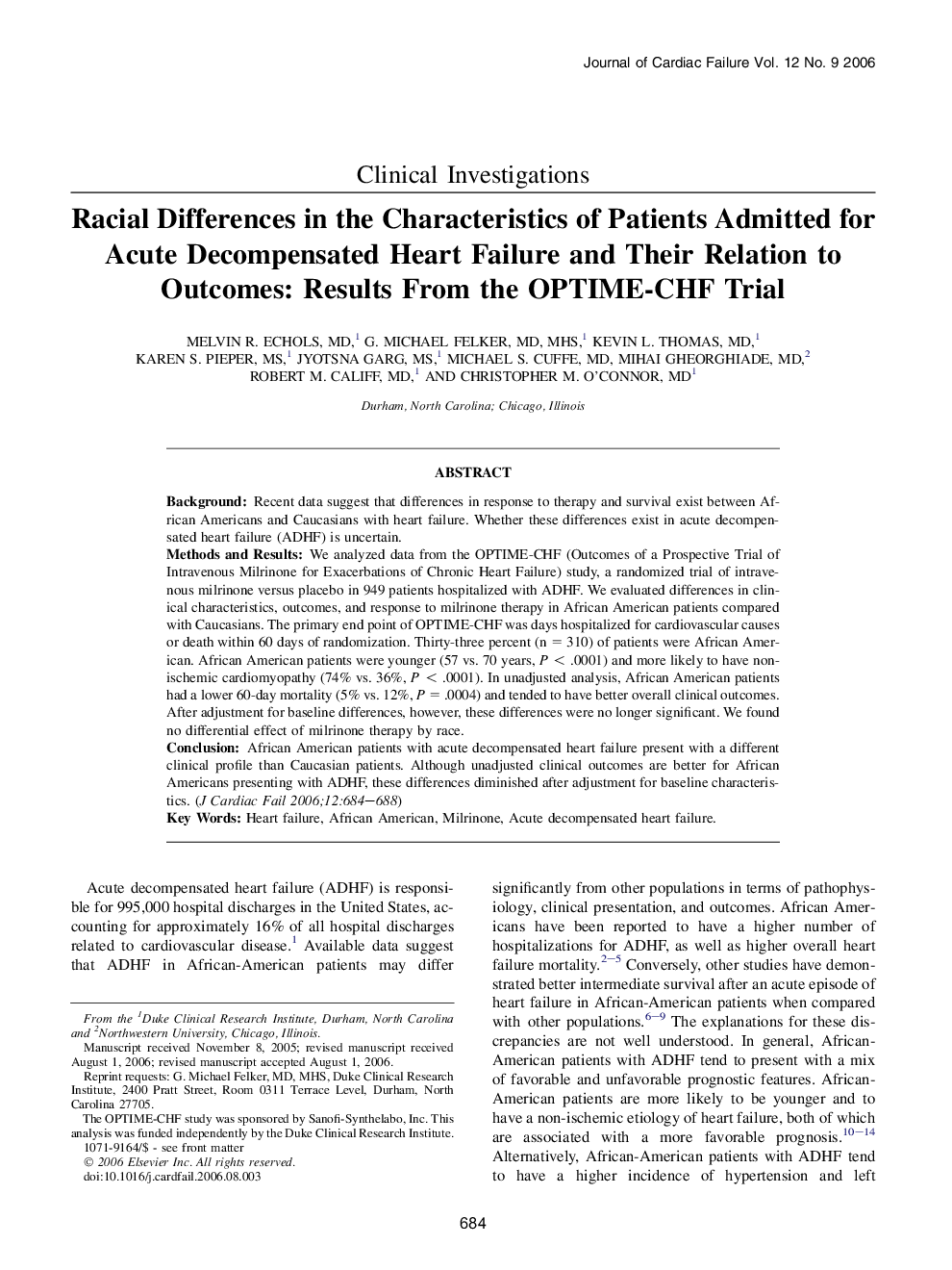| Article ID | Journal | Published Year | Pages | File Type |
|---|---|---|---|---|
| 2962634 | Journal of Cardiac Failure | 2006 | 5 Pages |
BackgroundRecent data suggest that differences in response to therapy and survival exist between African Americans and Caucasians with heart failure. Whether these differences exist in acute decompensated heart failure (ADHF) is uncertain.Methods and ResultsWe analyzed data from the OPTIME-CHF (Outcomes of a Prospective Trial of Intravenous Milrinone for Exacerbations of Chronic Heart Failure) study, a randomized trial of intravenous milrinone versus placebo in 949 patients hospitalized with ADHF. We evaluated differences in clinical characteristics, outcomes, and response to milrinone therapy in African American patients compared with Caucasians. The primary end point of OPTIME-CHF was days hospitalized for cardiovascular causes or death within 60 days of randomization. Thirty-three percent (n = 310) of patients were African American. African American patients were younger (57 vs. 70 years, P < .0001) and more likely to have non-ischemic cardiomyopathy (74% vs. 36%, P < .0001). In unadjusted analysis, African American patients had a lower 60-day mortality (5% vs. 12%, P = .0004) and tended to have better overall clinical outcomes. After adjustment for baseline differences, however, these differences were no longer significant. We found no differential effect of milrinone therapy by race.ConclusionAfrican American patients with acute decompensated heart failure present with a different clinical profile than Caucasian patients. Although unadjusted clinical outcomes are better for African Americans presenting with ADHF, these differences diminished after adjustment for baseline characteristics.
